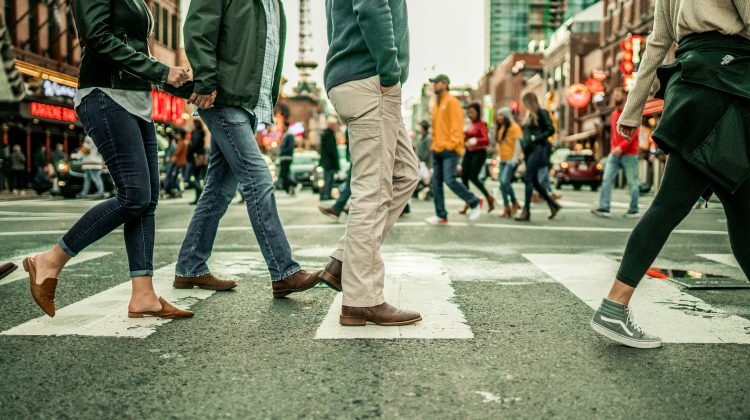Going for a walk can seem like a normal and safe activity but when done at night, certain dangers can be present. In 2021, 7,300 people died while walking and 75% of these deaths occurred in the night. There are several factors as to why walking at night leads to more fatalities than during the day such as distracted walking/driving, going to bars, workers driving home from work, and darkness making crime easier to get away with. Walking alone at night can feel daunting, but with the right precautions, you can enhance your safety and peace of mind. Whether you’re navigating city streets or suburban neighborhoods, these ten tips will help you stay safe during your nighttime walks.
1. Plan Your Route
Before heading out, familiarize yourself with the area and plan a well-lit route. Stick to main roads and avoid shortcuts through dimly lit alleys or secluded areas.
2. Call a Friend
Whenever possible, let a friend or family member know your walking route and estimated arrival time. If someone is available to be on the phone with you, this can make you less of a target to an attacker and ease your anxieties. Regular check-ins can provide an added layer of security also.
3. Take a Self-Defense Class
Consider taking a self-defense class to learn basic techniques for protecting yourself in threatening situations. Confidence in your ability to defend yourself can be empowering and potentially life-saving if you were to be attacked.
4. Avoid Suspicious People or Groups
Steer clear of individuals or groups that make you feel uneasy. Cross the street or change direction if you sense potential danger.
5. Wear Bright or Reflective Clothing
Make yourself visible to drivers and cyclists by wearing bright or reflective clothing. This increases your visibility in low-light conditions, reducing the risk of pedestrian accidents.
6. Carry a Flashlight
Keep a small, powerful flashlight handy to illuminate dark areas and navigate uneven terrain. If you don’t have a flashlight, make sure to charge your phone before your walk to use your phone flashlight during your commute. A flashlight can also be used to signal for help in emergencies.
7. Invest in Self-Defense Gear
Consider carrying personal safety devices such as pepper spray, a personal alarm, or a safety whistle. These tools can provide an added sense of security and serve as deterrents to potential attackers.
8. Trust Your Intuition
Listen to your gut instincts. If something feels off or unsafe, don’t hesitate to alter your plans or seek assistance. Your intuition is a powerful tool for self-preservation. If you feel unsafe, go to the nearest business and call a ride to drive you the rest of the way.
9. Stay Alert
Stay vigilant and aware of your surroundings at all times. Avoid distractions like texting or wearing headphones, as they can make you more vulnerable to potential threats such as distracted or drunk drivers and attackers.
10. Share Your Location with a Loved One
Utilize smartphone apps or features that allow you to share your real-time location with trusted contacts. This provides an extra layer of security and ensures that someone knows your whereabouts in case of an emergency.
Stay Safe While Walking at Night
In conclusion, walking alone at night doesn’t have to be a daunting experience. By following these ten tips, you can take proactive measures to enhance your safety and confidence while navigating nighttime environments. Remember to trust your instincts, stay aware of your surroundings, and prioritize your well-being at all times. With the right precautions in place, you can enjoy your nighttime walks with greater peace of mind.




No Comment